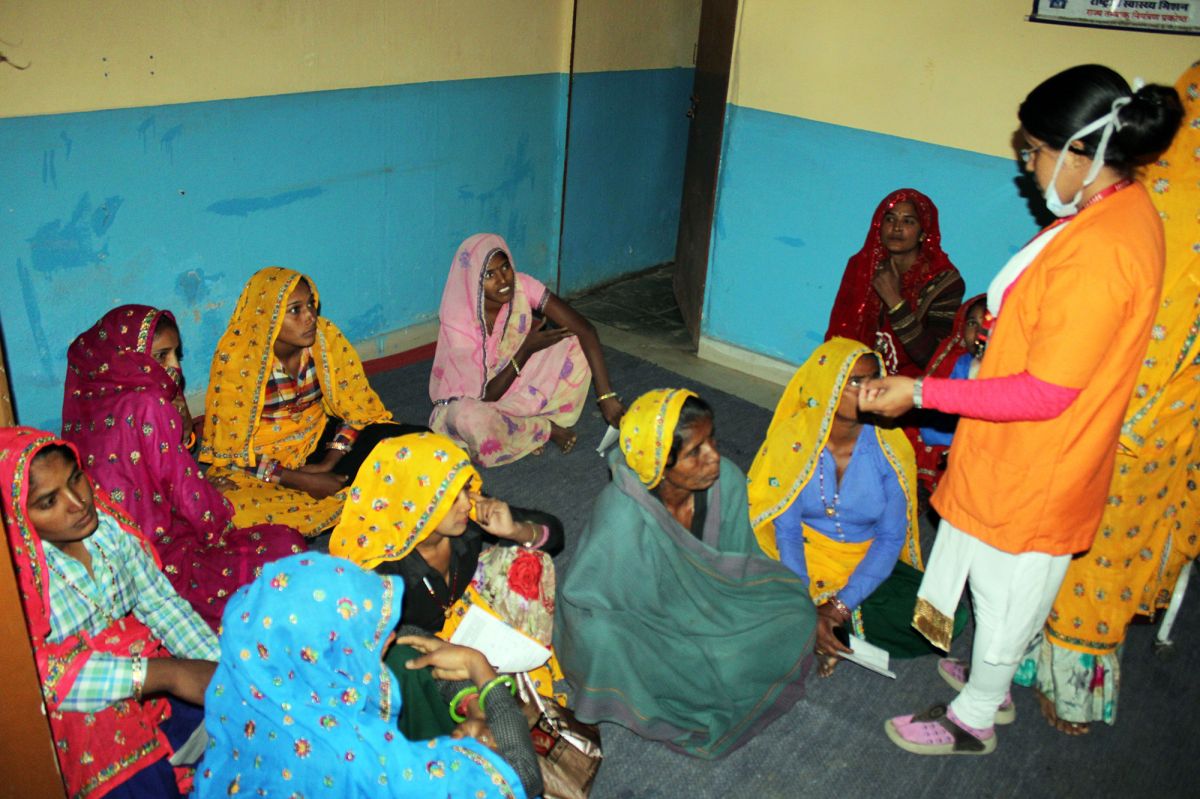Prasuti Niyojan Diwas: A Case Study on Rural PHC Program in Rajasthan

Giving birth always brings psychological, physical and emotional stress to a woman, whether it is her first pregnancy or second. This stress can be of varying degrees for women, depending upon their nutrition, physical health, traditional beliefs, delay in recognizing the health issues, delay in seeking treatment, low perceived risk, knowledge of danger signs and complications. In a state like Rajasthan, a large part of population resides in difficult geographical terrains that lack transport facilities to reach health facilities. Also, distance between their residence and the health facility is more and several PHCs don’t have even ambulance facility, which is a reason why women prefer home delivery in those areas.
All these aspects are well covered under the birth preparedness plan of WHO. Birth Preparedness and Complication Readiness (BPCR) is an intervention included by WHO as an essential element of the Ante-natal Care (ANC) package, which contains elements like the desired place of birth; the preferred birth attendant; the location of the closest facility for birth and in case of a complication; funds for any expenses related to birth and in case of complications; supplies and materials necessary to bring the patient to the facility; an identified labour and birth companion; an identified support to look after the home and other children while the woman is away; transport to take the patient to a facility for birth or in the case of a complication; and the identification of compatible blood donors in the case of emergency.[1]
Since it has been observed that many pregnant women are not able to reach the hospital either on time or are not able to choose the appropriate health facility for delivery because of which they are not able to get the full advantage of the specialist services, the Government of Rajasthan launched the Prasuti Niyojan Diwas (PND) in October 2016.[2] The objective of the PND is to ensure safe delivery by preparing an effective birth plan, and inform the guardian of the pregnant woman about it. PND is observed on every fourth Thursday of the month at all CHCs, PHCs and Sub Centers for counselling of pregnant women running in their eighth and ninth month of pregnancy for effective delivery planning, vehicle selection and information about government schemes for improving maternal and child health.
PND is organized regularly at all the WISH managed PHCs. The ANCs were informed about the activity at the time of MCHN day, and through door-to-door contact by ASHA. The PND has played an important role in improving rapport of the staff with community, and earning their confidence. It can be seen in improvement in the number of average attendees in PND sessions held in the last three years. 
Initially, the data shows that the average number of attendees per month per PHC declined because during that period, ANCs, who were not in their eighth or ninth month of pregnancy, were also participating. But, gradually, ANMs made them aware, and focused only on the pregnancies of eighth or ninth month. As a result, the proportion of eighth and ninth month ANCs increased from forty-eight percent in 2017-18 to fifty-seven percent in 2019-20. Also, the proportion of high risk pregnancies has increased.

During the PND, the pregnant women also undergo necessary tests like weight measurement, Hb, Blood pressure, fetal heart sound, fundus check-up, etc. ASHA has the responsibility to call the eligible ANCs at the facility on PND. As per the expected date of delivery, the pregnant woman and her guardian are informed about the appropriate institution for delivery and the same is also mentioned on her Mamata Card. The information about available transport facility is also shared with them. The high-risk pregnancies are informed about the higher level of health facilities, and the ASHA is responsible to provide support to her. Prasuti Niyojan Diwas is also one of the key components of Kushal Mangal Karyakram (KMK), which was launched on 11th August 2015.
PND has great significance in terms of providing an opportunity for community mobilization; generating awareness among pregnant women; improving rapport with them, and counseling on birth related preparations. The importance of birth planning is well recognized in public health, and it also plays a role in improving institutional delivery, and reducing home delivery. In tribal and rural settings where awareness is low and socio-cultural practices are more prevalent, PND is very crucial to bring awareness in the community and to achieve positive pregnancy outcomes.
http://wishfoundationindia.org/wp-content/uploads/2022/01/institutional-delivery_two-pager-Final-Draft.docx
https://www.who.int/reproductivehealth/publications/maternal_perinatal_health/emergency_preparedness_antenatal_care.pdf
